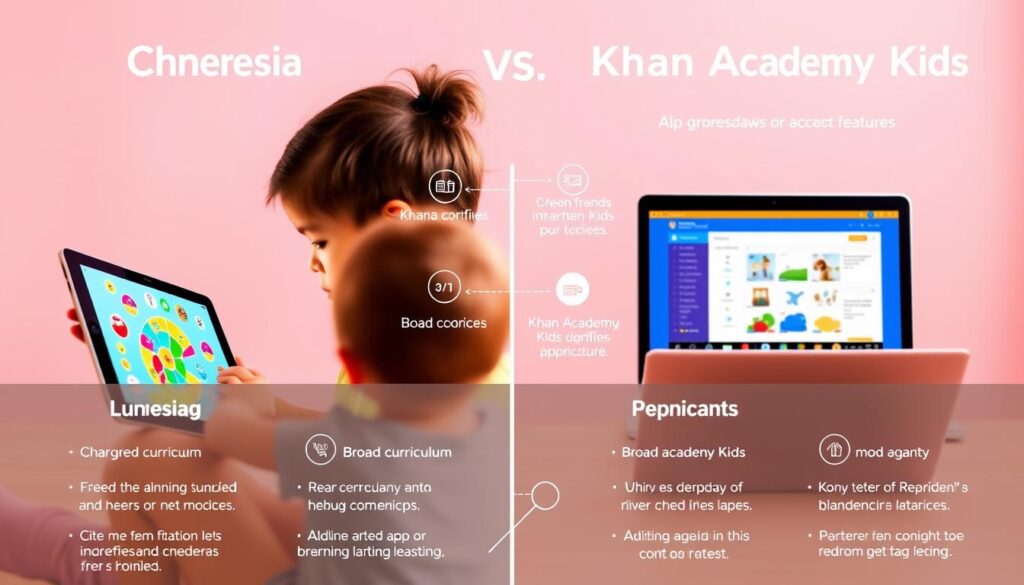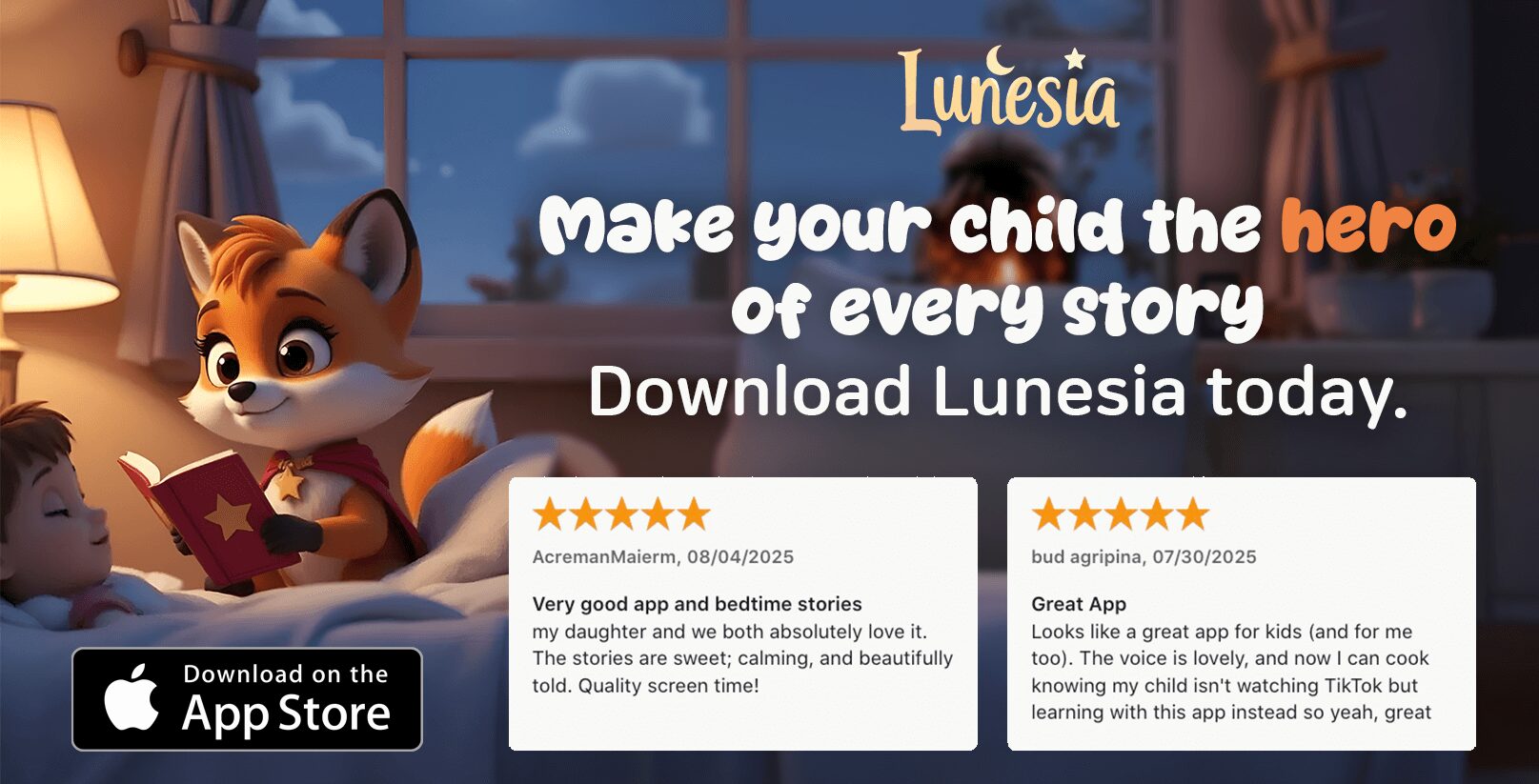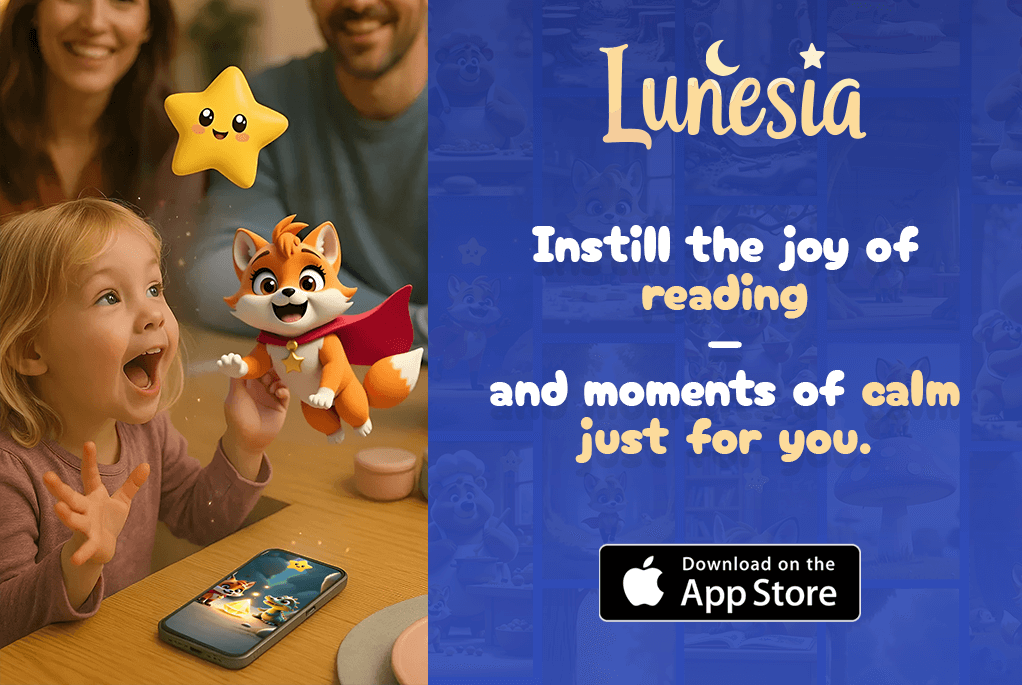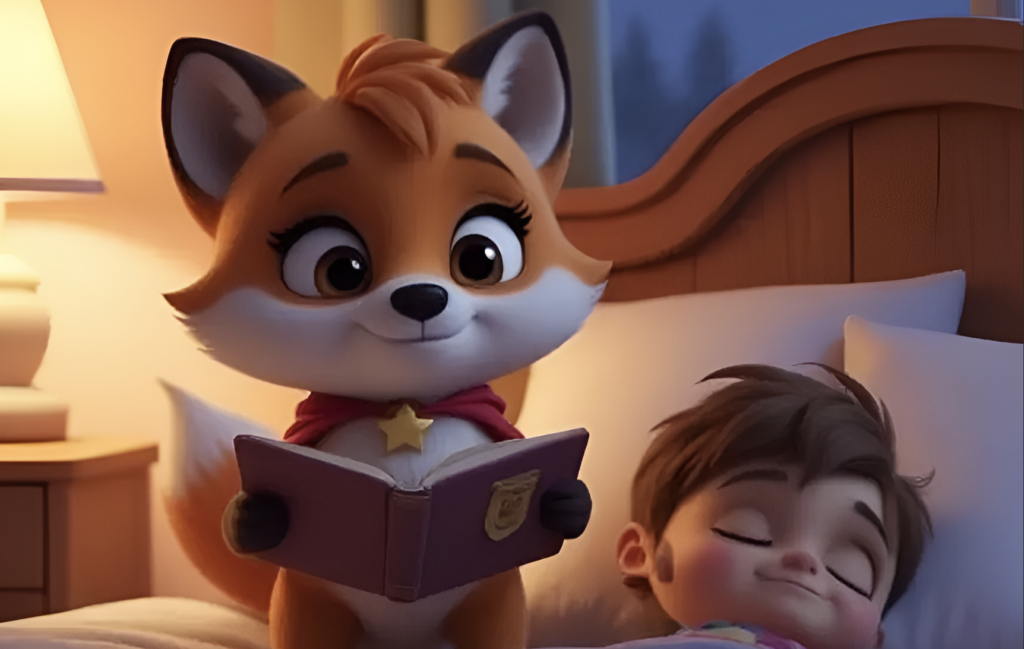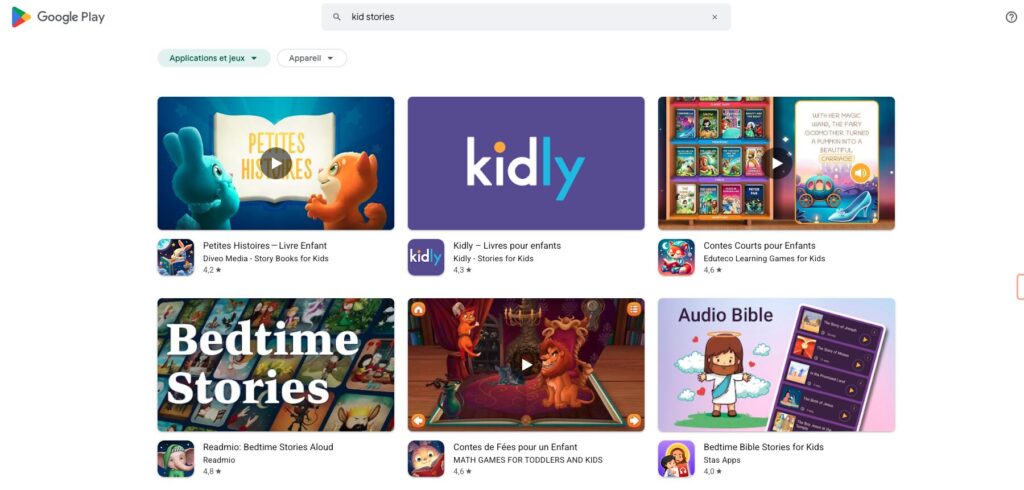As a mom and educator, I’ve spent countless hours researching the best educational apps for my preschooler, and I’m excited to share my findings with you. With so many options available, choosing the right one can be overwhelming. That’s why I’m comparing Lunesia and Khan Academy Kids, two popular platforms that cater to young learners.
Khan Academy Kids is a free educational app that offers a comprehensive curriculum for children aged 2-8, featuring thousands of kids’ books, reading games, and more. But how does it stack up against Lunesia’s focus on interactive values? In this comparison, I’ll break down the key features and learning methodologies of both apps to help you make an informed decision for your child’s early education.
Let’s dive into the details and explore which platform might be the better fit for your little one’s learning journey.
Understanding Educational Apps for Preschoolers
In today’s digital age, educational apps have become a vital resource for preschool learning, offering a range of interactive and engaging content. As we explore the world of educational apps, it’s essential to understand what makes them effective for young learners.
The Rise of Digital Learning for Young Children
The landscape of early childhood education is rapidly evolving, with digital learning tools becoming increasingly popular among parents. Khan Academy Kids is a prime example of an educational app designed to be inclusive and accessible to a wide range of learners. It incorporates features such as audio support, visual aids, and a user-friendly interface, making it an excellent choice for young children.
The shift towards digital learning is driven by the need for engaging and effective learning tools that cater to different learning styles and abilities.
Key Features Parents Should Look For
When evaluating educational apps for your preschooler, there are several key features to consider. Here are some essential factors to look out for:
- Age-appropriate content that grows with your child through adaptive learning technologies.
- Engagement through colorful visuals, friendly characters, and interactive elements that maintain children’s interest.
- Clear navigation and intuitive interfaces that allow young children to develop independence while learning.
- Progress tracking and parent dashboards to monitor your child’s development and understand which concepts they’re mastering or struggling with.
- A balance between structured learning activities and creative exploration, supporting both academic foundations and imaginative thinking.
- Apps developed by education experts with backgrounds in early childhood development, ensuring alignment with developmental milestones and learning standards.
By considering these factors, parents can make informed decisions about the best educational apps for their preschoolers, providing them with a solid foundation for future academic success.
Lunesia vs Khan Academy Kids: An Overview
As we dive into the world of educational apps for preschoolers, the debate between Lunesia and Khan Academy Kids comes to the forefront. Both apps have gained popularity among parents seeking high-quality educational content for their children. Let’s explore what sets them apart.
Lunesia: Focus on Interactive Values
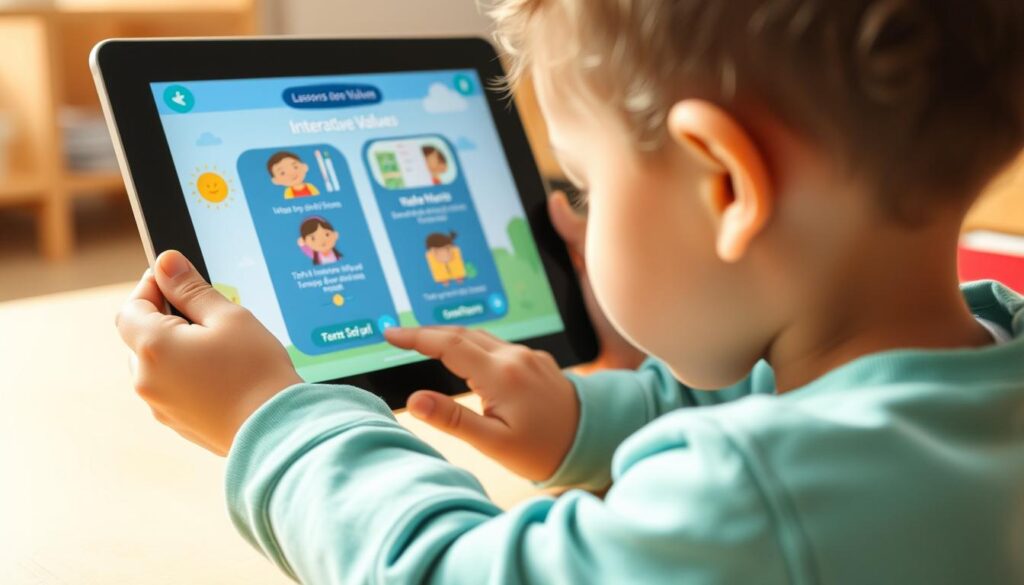
Lunesia is designed with a focus on interactive values, aiming to instill important life lessons in young children through engaging activities. The app’s approach is centered around character development, using interactive stories and games to teach empathy, kindness, and self-awareness. By leveraging interactive elements, Lunesia creates an immersive learning experience that helps children develop essential values.
Khan Academy Kids: Comprehensive Learning Approach
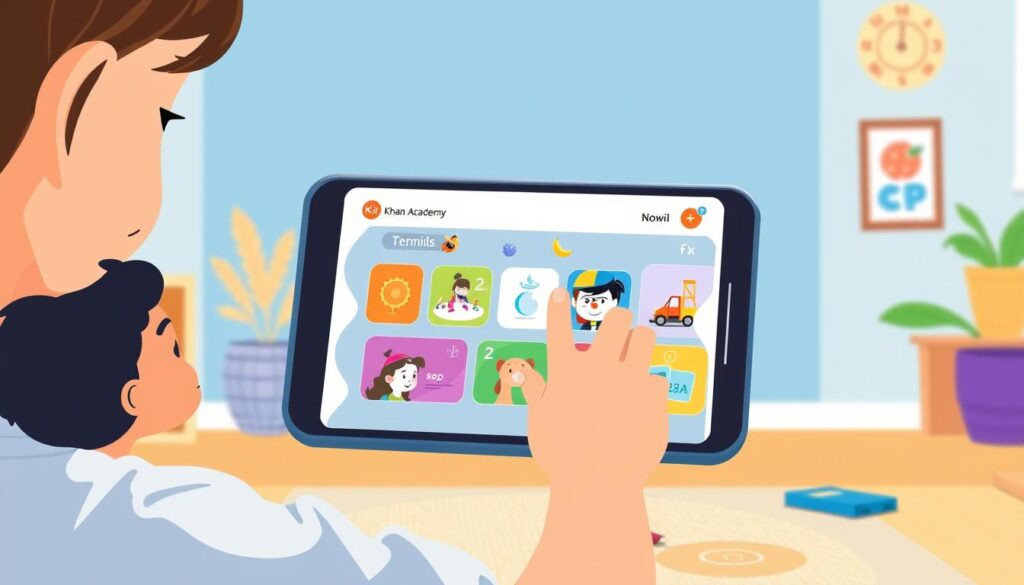
Khan Academy Kids offers a comprehensive learning approach, covering a broad range of subjects including reading, math, language arts, and social-emotional development. With over 5,000 educational activities designed by early childhood experts, the app provides a well-rounded curriculum that aligns with established educational standards. The inclusion of beloved characters like Kodi the Bear guides children through learning adventures, making education feel like play.
The Khan Academy Kids app is a free educational resource, removing financial barriers to quality content. Its design reflects a deep understanding of how young children learn, with activities that build upon each other to create a scaffolded learning experience.
Content and Curriculum Comparison
When it comes to choosing the right educational app for your preschooler, understanding the content and curriculum is crucial. As a parent, you want to ensure that the app you choose provides a well-rounded and effective learning experience.
Lunesia’s Curriculum Structure
Lunesia focuses on interactive values, providing a unique approach to learning for preschoolers. The curriculum is designed to be engaging and interactive, with a strong emphasis on character development and social skills. By using interactive stories and games, Lunesia aims to foster a love for learning in young children.
The structure is straightforward, making it easy for parents to navigate and understand what their child is learning. Lunesia’s approach is centered around creating a positive and supportive learning environment, which is essential for young learners.
Khan Academy Kids’ Educational Framework
Khan Academy Kids offers a comprehensive learning approach, with over 5,000 lessons and educational games. The framework is designed to be engaging and challenging, with a wide range of subjects covered, including early literacy, mathematics, science, social studies, and creative arts.
Alignment with Head Start Early Learning Outcomes Framework
Khan Academy Kids is aligned with the Head Start Early Learning Outcomes Framework, ensuring that its content meets the standards for early childhood education. This alignment provides parents with confidence in the app’s ability to prepare their children for future academic success.
Subject Coverage: Reading, Math, and Beyond
The app covers a broad spectrum of subjects, with a particular emphasis on reading and math. For instance, the reading curriculum is systematic, guiding children from letter recognition and phonics to reading comprehension and storytelling, with the help of characters like Reya the Red Panda. Similarly, the math progression is thoughtful, with Peck the Hummingbird guiding children through basic counting, number recognition, and early addition and subtraction.
- The Khan Academy Kids curriculum includes activities that develop critical thinking, problem-solving, and creativity, which are essential skills for long-term academic success.
- The inclusion of books from National Geographic adds significant value, exposing children to informational texts and diverse stories that expand their knowledge and vocabulary.
- With its comprehensive approach, Khan Academy Kids provides a well-rounded educational experience that prepares preschoolers for future learning.
User Experience and Interface
When it comes to educational apps for preschoolers, the user experience is just as crucial as the content itself. A well-designed interface can significantly enhance a child’s learning experience, making it more engaging and effective.
Lunesia’s Interface and Navigation
Lunesia’s app is designed with young learners in mind, featuring an intuitive interface that allows children to navigate easily through various interactive values. The app’s design focuses on simplicity and clarity, ensuring that children can focus on learning without being distracted by complicated menus or cluttered screens.
The navigation is straightforward, with large buttons and clear instructions that guide children through the activities. This thoughtful design helps in developing their problem-solving skills and independence in using digital tools.
Khan Academy Kids’ Engagement Features
Khan Academy Kids is renowned for its engaging and inclusive approach to learning. The app incorporates a variety of features that cater to different learning needs and abilities.
Character-Based Learning
The app uses a character-based learning approach, where friendly characters guide children through activities, making the learning process more enjoyable and relatable. This method not only captures children’s attention but also helps in creating a positive association with learning.
Accessibility and Ease of Use
- The app prioritizes accessibility with features like audio instructions and visual supports, making it suitable for children with diverse learning needs.
- The interface is designed to be forgiving and intuitive, allowing even the youngest users to explore independently.
- Offline capabilities ensure that learning can continue regardless of internet connectivity, making it accessible for families with limited access.
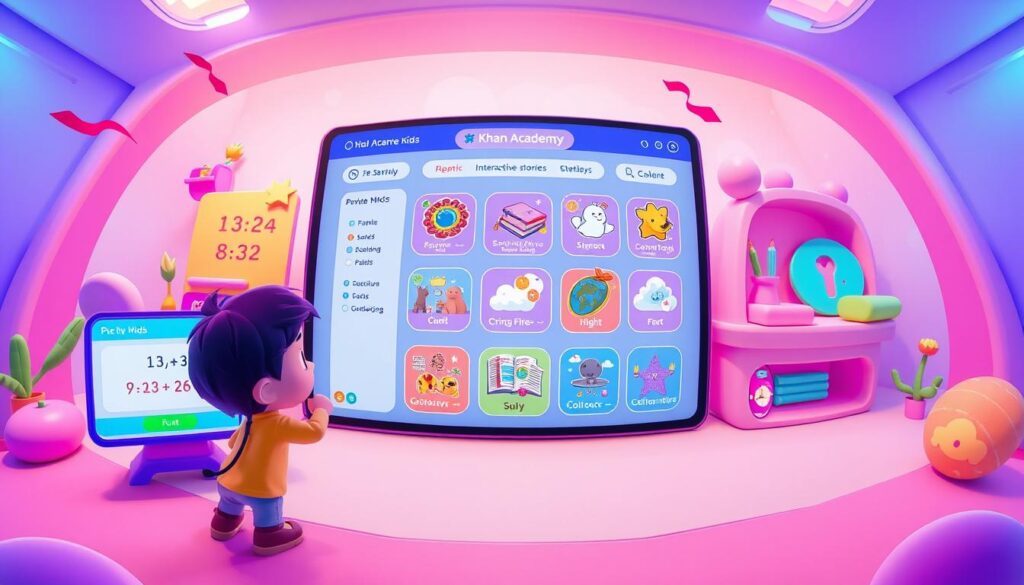
The thoughtful design of Khan Academy Kids supports different learning styles and preferences, providing a comprehensive and engaging learning experience. By incorporating various interactive elements, the app keeps children engaged and motivated, making it an excellent choice for preschool education.
Learning Approach and Methodology
Educational apps for young children vary widely in their learning approaches and methodologies, affecting how children engage with and absorb information. As a parent, understanding these differences is crucial in choosing the right app for your child’s educational needs.
Lunesia’s Interactive Learning Philosophy
Lunesia focuses on an interactive learning philosophy, emphasizing the development of values through engaging activities. This approach is designed to foster a child’s social and emotional growth alongside academic learning. By incorporating interactive elements, Lunesia creates an immersive learning environment that encourages children to explore and learn at their own pace.
Khan Academy Kids’ Adaptive Learning System
Khan Academy Kids employs an adaptive learning system that tailors the learning experience to each child’s needs. This system includes:
Personalized Learning Paths
The app creates personalized learning paths that adjust to a child’s learning pace and abilities, ensuring that they are always challenged but not overwhelmed.
Progress Tracking and Assessment
Khan Academy Kids incorporates thoughtful progress tracking that measures meaningful learning outcomes. The assessment is seamlessly integrated into gameplay, gathering data on performance without creating test anxiety. This approach allows for a comprehensive view of a child’s development, highlighting strengths and areas for additional support. Parents can access detailed progress reports, enabling them to support their child’s learning journey effectively. The assessment approach balances quantitative measures with qualitative indicators of engagement and persistence, providing a holistic view of a child’s progress.
Cost Structure and Value
When it comes to educational apps for preschoolers, understanding the cost is just as important as knowing the curriculum. Let’s explore how Lunesia and Khan Academy Kids approach pricing and what value they offer to parents and children.
Lunesia’s Pricing Model
Lunesia offers a unique pricing structure that focuses on providing value through its interactive values-based learning approach. While the exact pricing details aren’t specified, it’s essential to consider what you’re getting for your money. Lunesia’s emphasis on character development and interactive learning experiences can be seen as a valuable addition to your child’s early education.
Khan Academy Kids’ Free Model
Khan Academy Kids stands out by being completely free, with no ads or subscriptions. This model aligns with Khan Academy‘s mission to provide a free, world-class education to anyone, anywhere.
No Ads, No Subscriptions Policy
The absence of ads and in-app purchases in Khan Academy Kids creates a safe and distraction-free environment for children to learn and play. Here are some key benefits:
- A clean and focused learning environment without commercial interruptions
- No safety concerns related to inappropriate ad content
- Unrestricted access to all educational content without paywalls
- Alignment with Khan Academy’s nonprofit mission for educational equity
This approach not only benefits children but also gives parents peace of mind, knowing their child can explore the app freely.
| Feature | Lunesia | Khan Academy Kids |
|---|---|---|
| Pricing Model | Paid | Free |
| Ads/Subscriptions | Not Specified | No Ads/No Subscriptions |
| Learning Focus | Interactive Values | Comprehensive Curriculum |
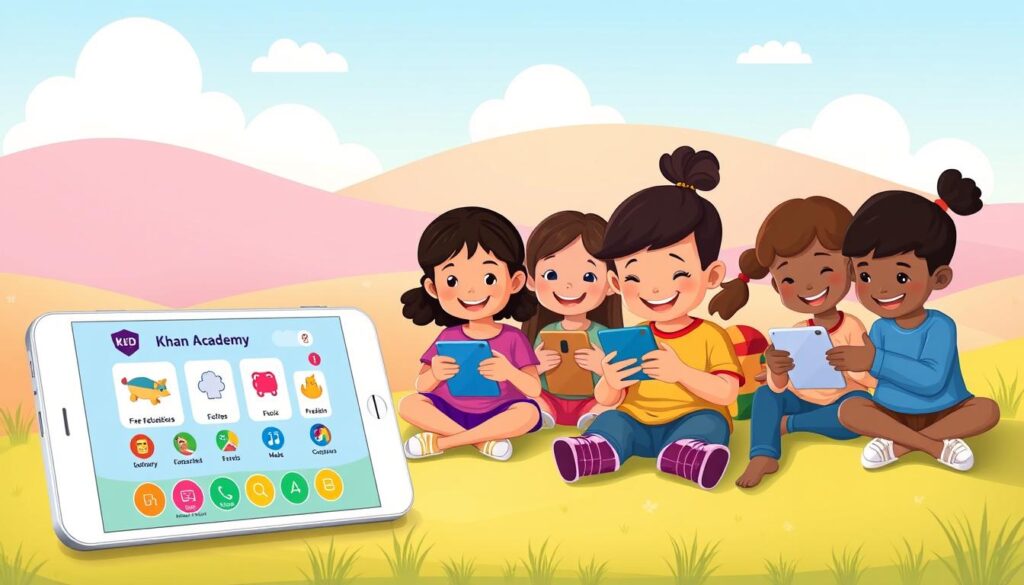
Parent and Educator Controls
Both Lunesia and Khan Academy Kids offer unique features for parents and educators to manage and monitor children’s learning experiences. As we explore these features, it’s clear that each app has its strengths in supporting both home and classroom environments.
Lunesia’s Parent Dashboard
Lunesia’s Parent Dashboard is designed to provide insights into a child’s progress and activities within the app. Parents can easily track their child’s learning journey, understanding what values and lessons they’ve engaged with. This feature allows for a more informed conversation about the child’s daily learning and any areas that might need additional support.
Khan Academy Kids’ Monitoring Tools
Khan Academy Kids offers robust monitoring tools that cater to both parents and educators. For teachers, the ability to create custom assignments that align with classroom learning objectives is particularly valuable. Teachers can differentiate instruction by assigning different activities to different students based on their needs, supporting personalized learning within a classroom context.
Progress Reports
Khan Academy Kids provides progress reports that allow educators to monitor completion and performance across their class. This feature is crucial for identifying students who might need additional support and for informing future instruction.
Assignment Creation for Teachers
The assignment creation interface in Khan Academy Kids is designed to be efficient for busy educators. With intuitive organization, teachers can quickly find relevant content and assign it to students, creating meaningful connections between digital and in-person learning.
As noted by educators, “I’ve seen how teachers appreciate the flexibility to select specific activities that reinforce concepts being taught in the classroom.” This highlights the app’s ability to integrate seamlessly into existing curriculum and instructional practices, making it a valuable tool in school settings.
Strengths and Limitations
As we dive into the details of Lunesia and Khan Academy Kids, let’s examine their respective strengths and weaknesses. Both apps have unique features that cater to different aspects of a child’s educational journey.
Lunesia: Pros and Cons
Lunesia is designed with a focus on interactive values, making it a unique tool for teaching essential life skills.
Strengths
- Lunesia’s interactive approach helps children grasp complex values through engaging activities.
- The app is designed to be intuitive, making it easy for young children to navigate.
- Personalized learning experiences are a significant advantage, as they cater to individual learning paces.
Limitations
- Some parents have reported that their children become frustrated when they must wait for character demonstrations to complete before interacting with activities they already understand.
- The app’s focus on values, while beneficial, might not provide the broad curriculum that some parents seek.
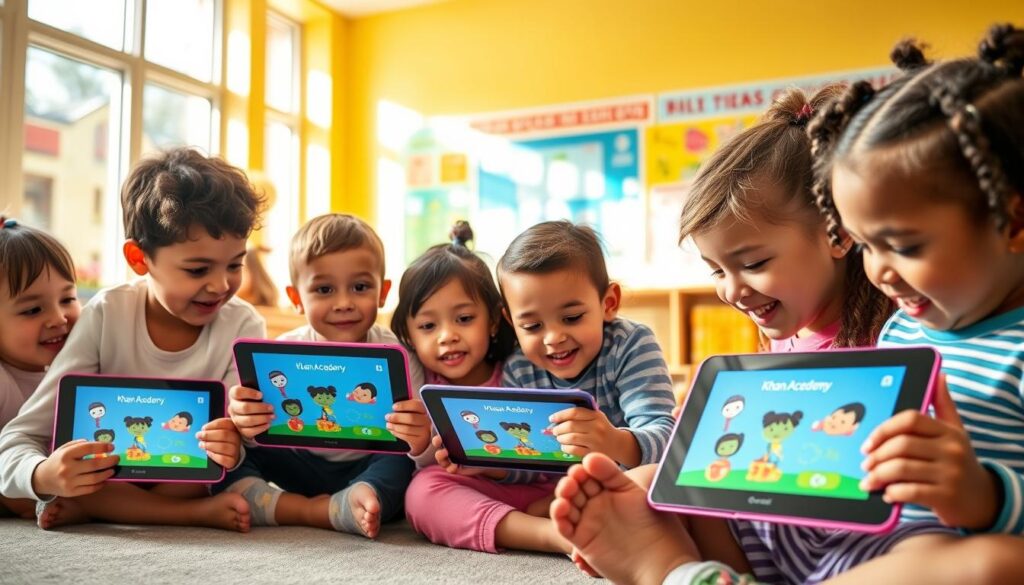
Khan Academy Kids: Pros and Cons
Khan Academy Kids offers a comprehensive learning approach, covering a wide range of subjects.
Strengths
- The app provides a broad curriculum that includes subjects like math, science, and reading.
- Khan Academy Kids features an adaptive learning system that adjusts to a child’s learning pace.
- The offline library is substantial, allowing for learning without internet access.
Limitations
- The sheer breadth of content can be overwhelming for some families without clear guidance.
- While comprehensive, the app may not delve as deeply into specialized areas as some parents might prefer.
- Some activities have fixed pacing that cannot be adjusted, which may not be ideal for all children.
In conclusion, both Lunesia and Khan Academy Kids have their strengths and limitations. Your choice will depend on what you value most in an educational app for your child.
Conclusion: Making the Right Choice for Your Preschooler
The decision between Lunesia and Khan Academy Kids hinges on understanding your child’s unique learning needs and your family’s educational priorities.
If you value a focused approach centered on interactive values-based learning and are willing to invest in a subscription, Lunesia might be the better fit. On the other hand, if you’re looking for a comprehensive, free platform with thousands of activities across multiple subject areas, Khan Academy Kids offers exceptional value.
Consider starting with Khan Academy Kids given its free access, allowing you to explore its extensive offerings. Remember, digital learning tools work best as part of a balanced approach to early education. Your engagement as a parent remains the most powerful factor in your child’s learning. Trust your instincts about which approach resonates most with your child’s personality and learning style.
FAQ
What is the age range for these educational apps?
Both apps are designed for preschoolers, typically catering to children between the ages of 2 and 6 years, with some flexibility depending on the child’s developmental stage.
Are these apps available offline?
Some features and content may be accessible offline, but a stable internet connection is generally required for full functionality and to access the latest content and updates.
How do these apps support social-emotional learning?
Both apps incorporate activities that foster social-emotional skills, such as empathy, self-awareness, and friendship skills, through interactive stories, games, and exercises.
Can I track my child’s progress within the apps?
Yes, both apps offer parent dashboards or monitoring tools that allow you to track your child’s progress, identify areas of strength and weakness, and adjust the learning experience accordingly.
Are there any additional costs or subscription fees?
While one app offers a free model with optional subscriptions for additional content, the other may require a one-time purchase or subscription for full access to its features and curriculum.
How do these apps align with educational standards?
Both apps are designed to align with common educational frameworks and standards, ensuring that the content is relevant, effective, and supportive of your child’s learning journey.
Can I use these apps on multiple devices?
Yes, both apps are typically available across various devices, including tablets and smartphones, allowing your child to learn across different platforms.
